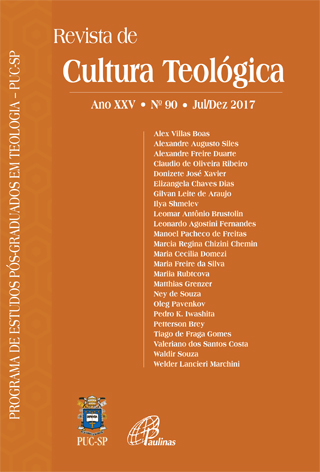The pluralist principle. Theoretical, conceptual and application possibilities
DOI:
https://doi.org/10.23925/rct.i90.35979Keywords:
Pluralistic principle, Religious pluralism, Latin American theology, OthernessAbstract
The text presents results of research carried out from evaluation efforts on Latin American theology regarding the challenges posed by pluralism. It is a critical analysis of its methodology, with a view to contributing to its improvement and indicating more adequate and more consistent responses to the growing complexity of social reality and pluralism, especially religious. This scenario is framed by economic factors and marked by an emergence of subjectivities, in addition to being also shaped by a framework of pluralism in different aspects increasingly intense in societies and cultures. For this critical effort, the pluralist principle was conceptualized. Methodologically, the following steps were taken: (i) synthesis of theological perspectives in the eld of ecumenical theology of religions; (ii) analysis of sources that highlight aspects of cultural complexity, human subjectivity, plurality, otherness and ecumenicity; (iii) analysis of the public importance of religions and the strength of counter-hegemonic movements, based on the pluralistic principle.Downloads
Published
2018-01-24
How to Cite
Ribeiro, C. de O. (2018). The pluralist principle. Theoretical, conceptual and application possibilities. Revista De Cultura Teológica, (90), 234–257. https://doi.org/10.23925/rct.i90.35979
Issue
Section
Artigos


